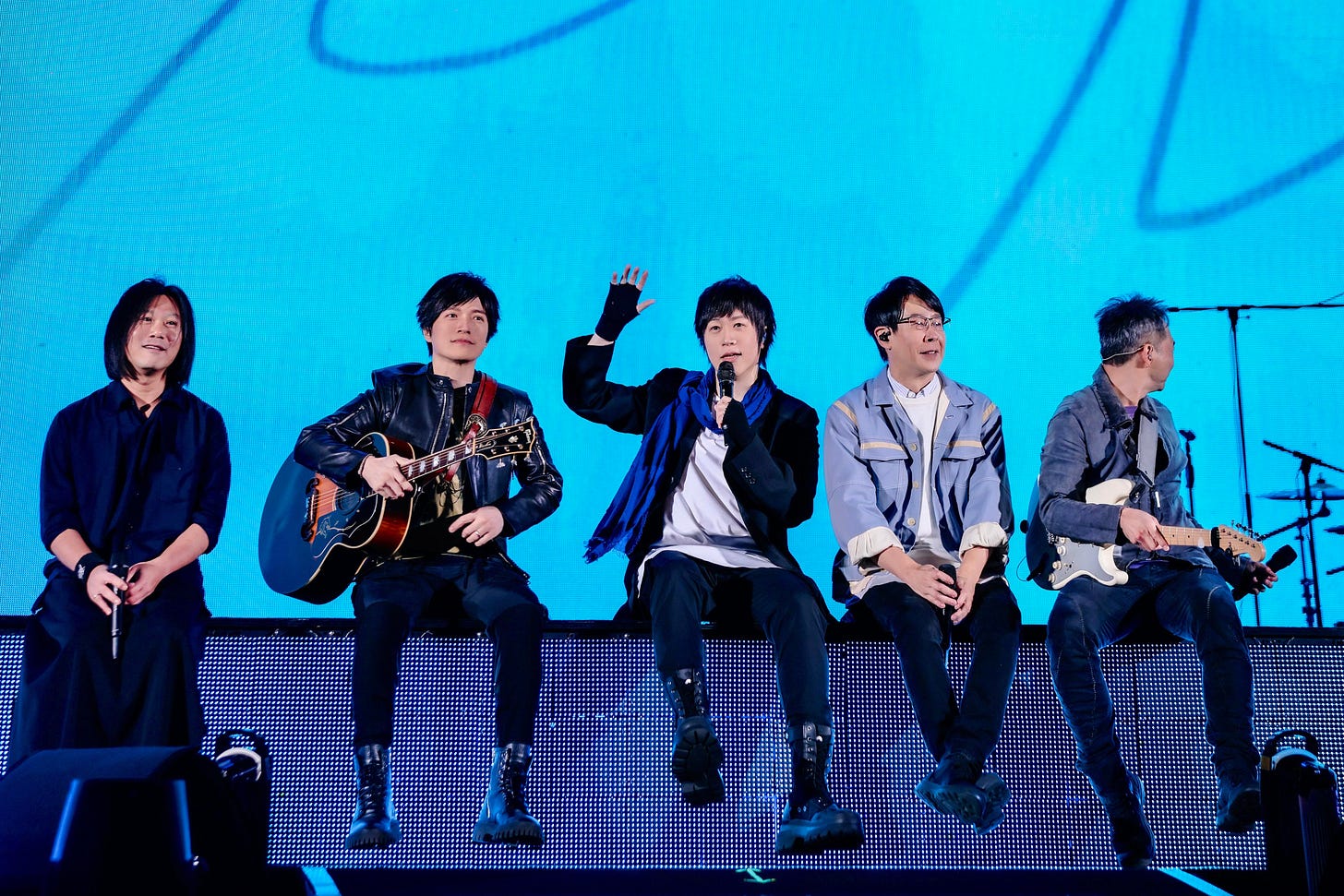Renowned Chinese Rock Band Mayday Embroiled in Lip-Sync Controversy
Political Pressure and Performance: Mayday Faces Dual Controversies in China
Mayday, the Taiwanese rock band, has recently become embroiled in a lip-sync controversy in China. Following China's regulations prohibiting singers from lip-syncing, the band has denied the allegations, labeling them as a betrayal to their fans. Chinese music Key Opinion Leader (KOL) "Phonetics Scholar 声理学" accused the band on personal Weibo, stating that they lip-synced during the Shanghai concert on November 16, prompting an investigation by Chinese authorities. Commercial regulations in China prohibit lip-sync performances in front of paying audiences, categorizing it as "deceiving the audience."
While some Chinese social media users questioned the accusations, pointing out that many artists have lip-synced experiences, others expressed disappointment if the band is proven to have lip-synced. Mayday's lead vocalist, Ashin, responded to the allegations on social media, emphasizing the authenticity of their performances and stating that "singing live" is the only way to connect with fans.
Mayday's record label, "B'in Music," stated that the band did not lip-sync during the concert and is cooperating with the investigation by the Shanghai Municipal Administration of Culture and Tourism. The controversy has sparked intense discussions among Chinese social media users and fans, with some questioning whether lip-syncing at ticketed concerts is a form of deception to consumers.
On the other hand, according to an internal security report reviewed by Reuters, the Chinese government pressured Mayday before the Taiwan presidential election to publicly express support for Beijing's stance that Taiwan is part of China and to participate in China's media propaganda targeting Taiwan. Insider sources revealed that the Chinese government requested the band to provide unspecified "political services," which the band refused. Subsequently, the Chinese government threatened to investigate lip-syncing and impose fines, stating that "they will pay the price if they do not cooperate." Reuters also mentioned that the Supreme People's Procuratorate, organizer of the "Procuratorial Daily," published an article in December last year, classifying lip-syncing as fraudulent behavior subject to Chinese legal sanctions and urging regulatory authorities to strengthen supervision. Currently, Mayday's Facebook and Weibo accounts have not addressed the issue and continue to post regular music promotion content.
Mayday performed in 12 cities, including Beijing, Hangzhou, Wuhan, Shenzhen, and Shenyang last year, totaling 47 shows, with 8 performances in Shanghai attracting an audience of 360,000. Regarding the lip-sync controversy, Lawyer Lantianbin from Jiangsu Fade Dongheng Law Firm stated that audience members deceived by lip-syncing have the right, according to consumer protection laws, to demand compensation for losses from the event organizers after leaving the venue. Event organizers can also seek compensation from responsible artistic performance groups and performers according to the law. Additionally, cultural authorities at the county level may impose fines ranging from RMB 5,000 to 100,000 for lip-syncing conditions provided to performers and for performers engaging in lip-syncing, respectively.





